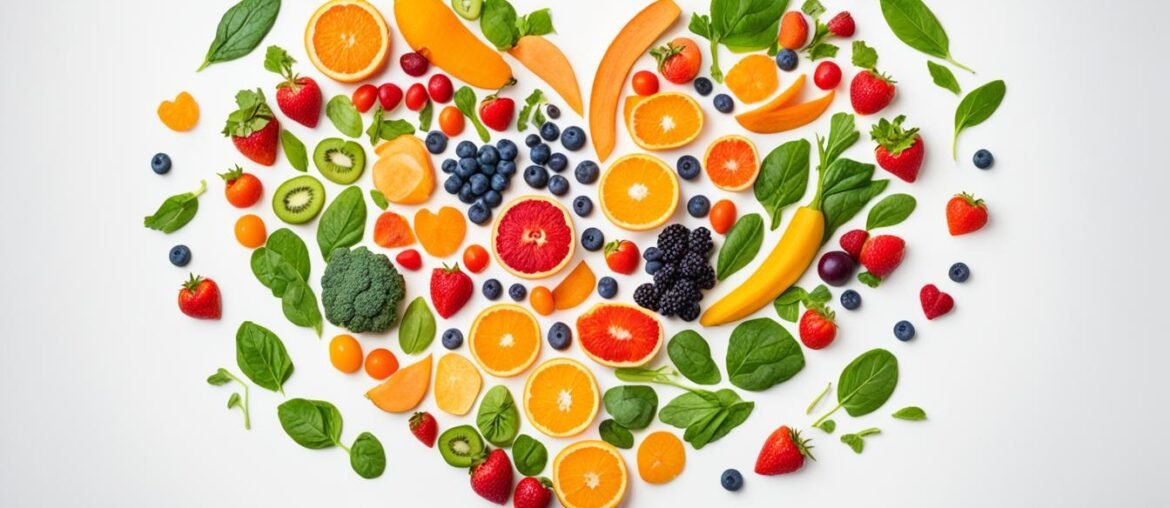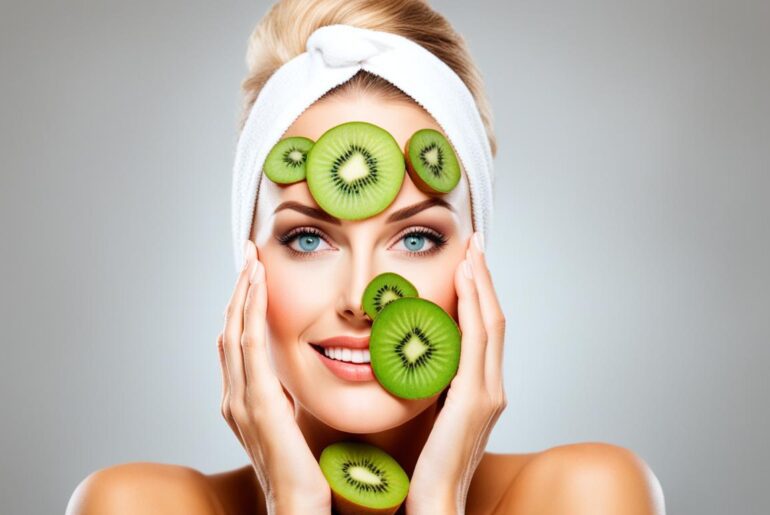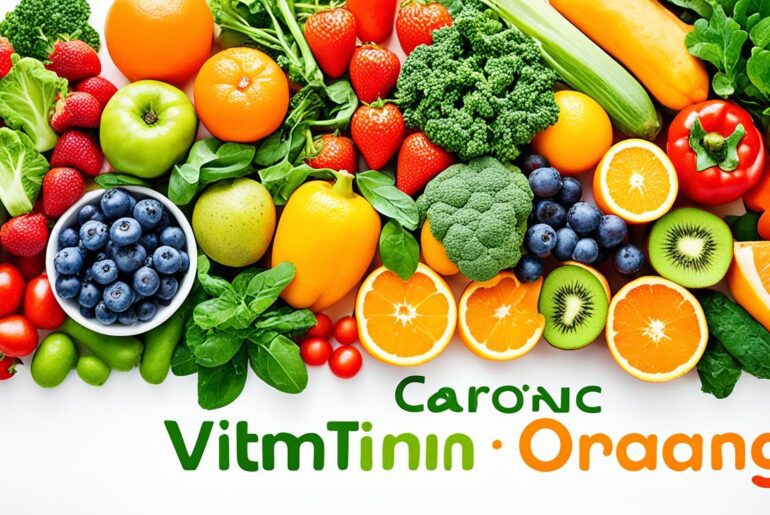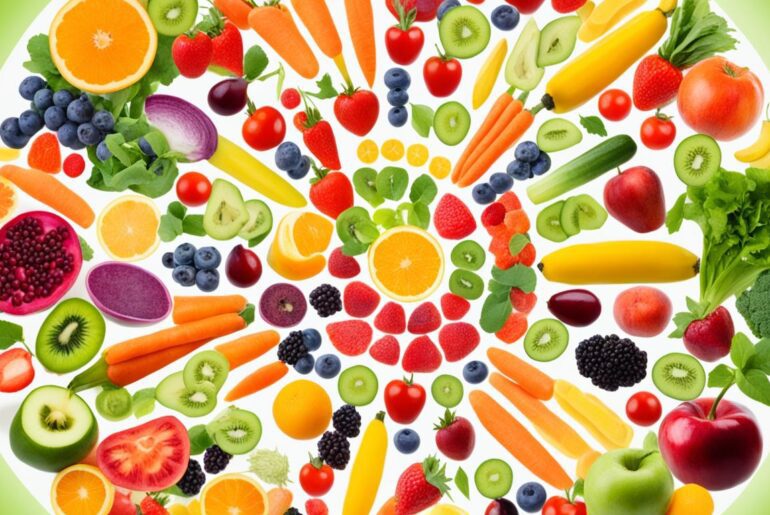Do you dream of having smooth, radiant skin that glows from within? Are you tired of trying endless skincare products that promise miraculous results but fall short of expectations? What if I told you that the key to achieving healthy and vibrant skin lies not in the aisles of beauty stores but in the foods you eat? Yes, you read that right. The secret to unlocking your skin’s natural beauty lies in nourishing it with essential vitamins.
Your skin is a mirror that reflects your inner well-being. It is influenced not only by external factors but also by the nutrients you consume. By incorporating the right vitamins into your diet, you can support cellular repair and rejuvenation, protect against free radical damage, and promote healthy skin from the inside out.
Are you ready to discover the vitamins that will enhance your skin’s health and bring out its natural glow? Let’s dive deep into the world of skin vitamins and explore the best ways to nourish your skin for lasting radiance.
Key Takeaways:
- Nourishing your skin with the right vitamins is essential for maintaining its health and promoting a radiant glow.
- Antioxidants like vitamins A, C, and E protect against free radical damage, while vitamins D and K support skin repair and healing.
- Essential B vitamins like niacin, pantothenic acid, and biotin promote overall skin health and reduce inflammation.
- Including a variety of nutrient-rich foods in your diet can provide your skin with the essential vitamins it needs for optimal health and radiance.
- Consulting with a healthcare professional before starting any new vitamin supplementation is always recommended.
The Importance of Antioxidants
When it comes to maintaining healthy and radiant skin, antioxidants play a vital role. These powerful compounds help neutralize free radicals, which can cause inflammation and accelerate the aging process. By protecting against oxidative damage from UV radiation, environmental pollutants, and internal metabolic processes, antioxidants promote cellular repair and rejuvenation, leading to healthier and more vibrant skin.
One of the key benefits of antioxidants for skin is their ability to counter the harmful effects of free radicals. These unstable molecules can damage collagen and elastin fibers, leading to fine lines, wrinkles, and sagging skin. By neutralizing free radicals, antioxidants help maintain the structural integrity of the skin, reducing the visible signs of aging.
Foods rich in antioxidants are an essential addition to a skin-friendly diet. Brightly-colored fruits and vegetables, such as berries, oranges, spinach, and bell peppers, are excellent sources of these beneficial compounds. Other antioxidant-rich foods include avocados, green tea, nuts, and legumes. By incorporating these nutrient-dense wholefoods into your daily meals, you can give your skin the support it needs for cellular repair and protection.
It’s important to note that while consuming antioxidant-rich foods is beneficial for skin health, a balanced diet and a comprehensive skincare routine are equally crucial. A combination of internal and external efforts can maximize the benefits of antioxidants for radiant skin.
Take a look at the table below for a list of foods that are rich in antioxidants:
| Foods Rich in Antioxidants | Antioxidant Content |
|---|---|
| Blueberries | High |
| Spinach | Moderate |
| Broccoli | Moderate |
| Dark Chocolate | High |
| Green Tea | Moderate |
| Nuts (Almonds, Walnuts) | Moderate |
| Red Grapes | Moderate |
In addition to consuming antioxidant-rich foods, incorporating skincare products with antioxidants can provide targeted support for your skin. Look for serums and moisturizers that contain vitamins C and E, green tea extract, or resveratrol. These ingredients can enhance the antioxidant defense of your skin and further protect it from environmental damage.
In summary, antioxidants are crucial for maintaining healthy and radiant skin. By neutralizing free radicals and protecting against oxidative damage, they promote cellular repair and rejuvenation. Incorporating foods rich in antioxidants into your diet, along with a comprehensive skincare routine, can help you achieve and maintain a vibrant complexion.
Vitamin A for Healthy Skin
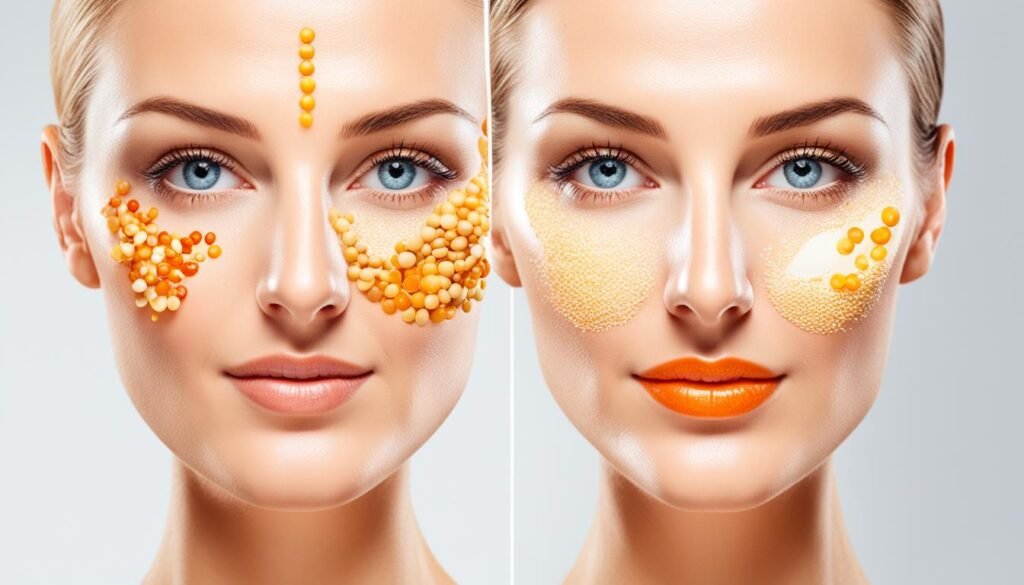
Vitamin A is a powerful antioxidant that provides numerous benefits for your skin. It plays a crucial role in promoting healthy skin by fighting free radicals, stimulating collagen production, and regulating sebum production. These effects contribute to a rejuvenated and radiant complexion.
One of the main benefits of vitamin A for skin is its effectiveness in treating acne. Its ability to regulate sebum production helps to prevent clogged pores, reducing the occurrence of breakouts. Additionally, vitamin A promotes skin cell turnover, aiding in the healing of existing acne and preventing further blemishes.
Collagen, a protein responsible for the structure and elasticity of the skin, is essential for maintaining a youthful appearance. Vitamin A stimulates collagen production, helping to reduce the appearance of fine lines and wrinkles, and improving skin elasticity.
There are various sources of vitamin A that you can incorporate into your diet to reap the benefits for your skin. Some excellent sources of vitamin A include:
- Cod liver oil
- Liver (such as beef, chicken, or pork liver)
- Egg yolks
- Vegetables rich in provitamin A (beta-carotene) like carrots and sweet potatoes
By including these vitamin A-rich foods in your diet, you can support the health and rejuvenation of your skin. However, it’s important to note that excessive intake of vitamin A can have adverse effects, so it’s best to consult with a healthcare professional before making any significant dietary changes or considering supplementation.
The image above visually illustrates the benefits of vitamin A for skin. It reinforces the role of vitamin A in promoting a healthy complexion, fighting free radicals, stimulating collagen production, and reducing acne.
Niacin for Skin Health
Niacin, also known as vitamin B3, is a crucial nutrient for maintaining soft, healthy, and glowing skin. Its numerous benefits make it an essential component of any skincare routine.
Benefits of Niacin for Skin:
- Promotes Optimal Skin Health: Niacin helps enhance cell metabolism, supporting the production of healthy new skin cells and promoting overall skin health.
- Reduces Inflammation: Niacin has anti-inflammatory properties that can help alleviate skin conditions such as acne, redness, and irritation.
- Anti-Aging Effects: Niacin supports the repair of damaged DNA and promotes collagen production, reducing the appearance of wrinkles, fine lines, and other signs of aging.
- Treats Acne: Niacin helps regulate sebum production, making it an effective treatment for acne-prone skin. It also aids in reducing the appearance of acne scars.
Sources of Niacin:
| Food Sources | Niacin Content (mg per 100g) |
|---|---|
| Chicken Breast | 14.84 |
| Tuna | 11.20 |
| Mushrooms | 5.52 |
| Green Peas | 2.09 |
| Avocado | 1.74 |
| Green Leafy Vegetables (Spinach, Kale) | 1.16-1.93 |
Incorporating these niacin-rich foods into your diet can help nourish your skin and enhance its health and appearance.
“Niacin, or vitamin B3, is a multifunctional nutrient that offers a wide range of benefits for skin health. It not only promotes cell metabolism and collagen production but also reduces inflammation and helps alleviate acne. Incorporating niacin-rich foods into your diet can transform your skin, leaving it soft, healthy, and radiant.”
Pantothenic Acid for Skin Healing
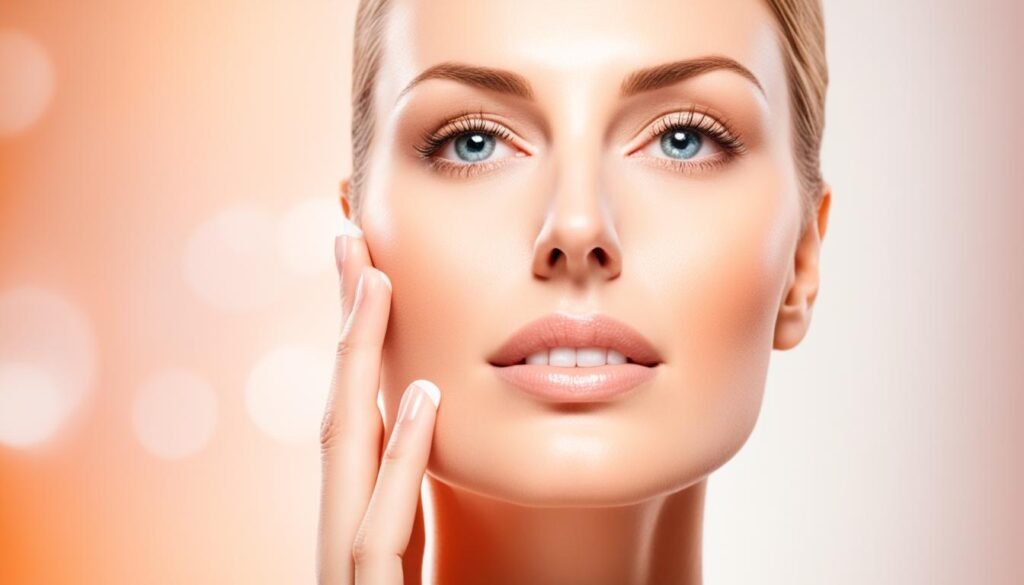
Pantothenic acid, also known as vitamin B5, plays a crucial role in promoting skin healing and maintaining skin health. This essential vitamin supports the growth of new skin cells and aids in the wound healing process.
One of the key benefits of pantothenic acid for the skin is its ability to regulate cortisol, the stress hormone. By balancing cortisol levels, pantothenic acid helps reduce the negative effects of stress on the skin, such as acne and inflammation.
In addition to stress relief, pantothenic acid keeps the skin moisturized by promoting the production of natural oils. This helps prevent dryness and maintains a healthy moisture barrier.
You can incorporate pantothenic acid into your diet through various food sources. Good sources of pantothenic acid include:
- Egg yolks
- Whole grains
- Broccoli
- Mushrooms
- Avocado
By including these foods in your diet, you can harness the benefits of pantothenic acid for skin healing and stress relief.
Key Takeaways:
- Pantothenic acid, or vitamin B5, supports skin healing and regulates cortisol levels.
- It helps keep the skin moisturized and prevents dryness.
- Good food sources of pantothenic acid include egg yolks, whole grains, broccoli, mushrooms, and avocado.
Biotin for Skin and Hair Health
Biotin, also known as vitamin B7, is a vital nutrient that offers numerous benefits for both your skin and hair. It plays a crucial role in protecting skin cells from water loss, ensuring optimal hydration, and promoting a healthy skin barrier. Biotin also helps regulate fatty acid metabolism, enhancing the health and vitality of your hair.
One of the key benefits of biotin for the skin is its ability to alleviate symptoms of various scalp conditions, including a scaly scalp and dandruff. By nourishing the scalp and promoting a balanced environment, biotin can help alleviate flakiness and discomfort.
In addition, biotin is known to support hair growth and reduce hair loss. It strengthens the hair follicles, allowing for healthy growth and minimizing breakage. Biotin is often recommended as a supplement for individuals experiencing hair thinning or brittle hair.
“Biotin is a powerful nutrient that promotes healthy skin and hair by nourishing cells and supporting essential metabolic functions.”
Furthermore, biotin is essential for promoting strong and healthy nails. It helps improve nail thickness and reduces brittleness, enhancing nail strength and overall appearance.
You can incorporate biotin into your diet through various food sources. Some excellent sources of biotin include:
- Egg yolks
- Beef liver
- Salmon
- Avocado
- Almonds
- Legumes
By incorporating these biotin-rich foods into your meals, you can support the health and vitality of your skin and hair.
Vitamin C for Collagen Production

Vitamin C is an essential nutrient for maintaining the health and appearance of your skin. It offers numerous benefits, including promoting collagen synthesis, wound healing, and protecting the skin from free radical damage. Collagen is a protein that provides structure and elasticity to your skin, and vitamin C plays a crucial role in its production.
When it comes to skincare, one of the key benefits of vitamin C is its ability to brighten the skin and promote a more even complexion. It can help fade dark spots, minimize discoloration, and impart a youthful radiance to your skin. Regular use of vitamin C can also improve the appearance of fine lines and wrinkles, giving you smoother and firmer skin.
There are several sources of vitamin C that you can incorporate into your diet to reap its skin-boosting benefits. Citrus fruits like oranges, lemons, and grapefruits are rich in vitamin C. Leafy greens such as spinach and kale, tomatoes, and berries like strawberries and blueberries are also excellent sources of this nutrient.
In addition to dietary sources, you can also use skincare products that contain vitamin C. Topical application of vitamin C can provide targeted benefits to your skin, helping to brighten, protect, and promote collagen production. Look for serums or creams that contain stabilized vitamin C to ensure its efficacy.
Vitamin C is a powerful antioxidant that not only benefits your skin but also protects it from harmful UV rays and environmental damage.
In summary, vitamin C is a vital nutrient for collagen synthesis and overall skin health. Whether consumed through your diet or applied topically, vitamin C can help brighten your skin, promote a more even complexion, and protect it from free radical damage. So, make sure to include vitamin C-rich foods in your diet and consider incorporating skincare products that harness the power of this potent antioxidant.
Key Takeaways:
- Vitamin C is essential for collagen synthesis and wound healing.
- It brightens the skin and promotes a more even complexion.
- Good dietary sources of vitamin C include citrus fruits, leafy greens, tomatoes, and berries.
- Skincare products containing vitamin C can enhance collagen production and protect the skin from free radical damage.
- Regular use of vitamin C can improve the appearance of fine lines and wrinkles.
Vitamin D for Skin Health
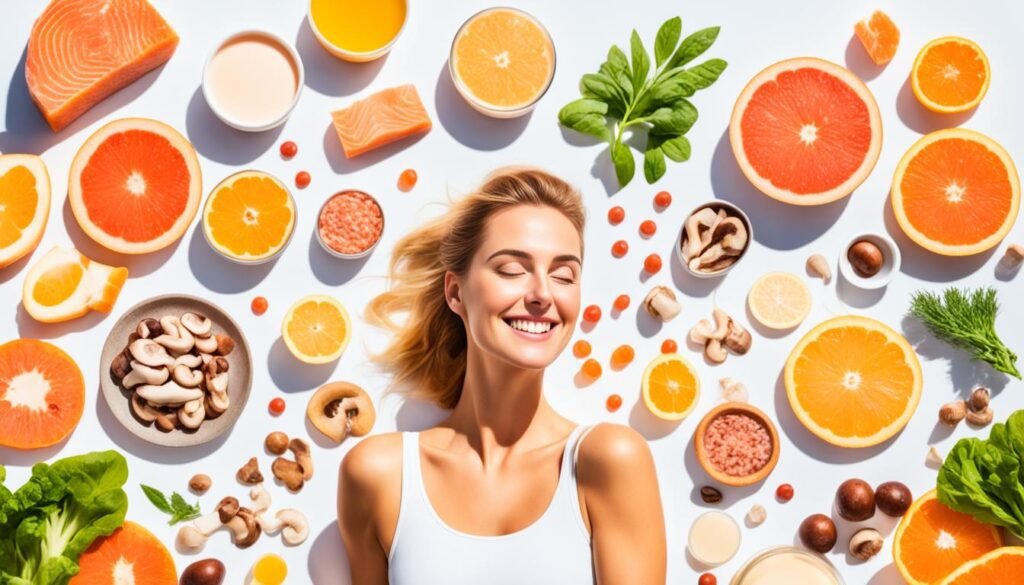
Vitamin D, often referred to as the “sunshine vitamin,” plays a crucial role in maintaining skin health and promoting overall well-being. This essential nutrient offers numerous benefits for the skin, including skin repair, strong bones, and immune function.
One of the primary benefits of vitamin D for skin is its ability to support skin repair and rejuvenation. It aids in the formation of new skin cells, which helps heal wounds, scars, and skin damage. Vitamin D also promotes the production of collagen, a protein that provides structure and elasticity to the skin, resulting in a more youthful and vibrant appearance.
Furthermore, vitamin D is essential for maintaining strong bones and teeth. It supports the absorption of calcium and phosphorus, which are vital for bone health. Additionally, vitamin D deficiency has been linked to conditions like osteoporosis, which can impact overall skeletal health.
This essential vitamin also plays a crucial role in immune function. It helps regulate immune responses, enhancing the body’s ability to fight off infections and diseases. Adequate levels of vitamin D can strengthen the immune system and promote optimal skin health.
To ensure sufficient vitamin D levels, it is important to obtain it from both sunlight and dietary sources. Sun exposure is an excellent way to naturally synthesize vitamin D in the body. Spending time outdoors, particularly during midday when the sun is strongest, can help boost vitamin D production.
Additionall, consuming foods rich in vitamin D can further support skin health and overall well-being. Some excellent dietary sources of vitamin D include:
- Fatty fish such as salmon, trout, and mackerel
- Eggs, particularly the yolks
- Fortified dairy products like milk and yogurt
By incorporating these foods into your diet and getting adequate sun exposure, you can help maintain optimal vitamin D levels and reap the benefits for your skin and overall health.
Vitamin E for Skin Protection
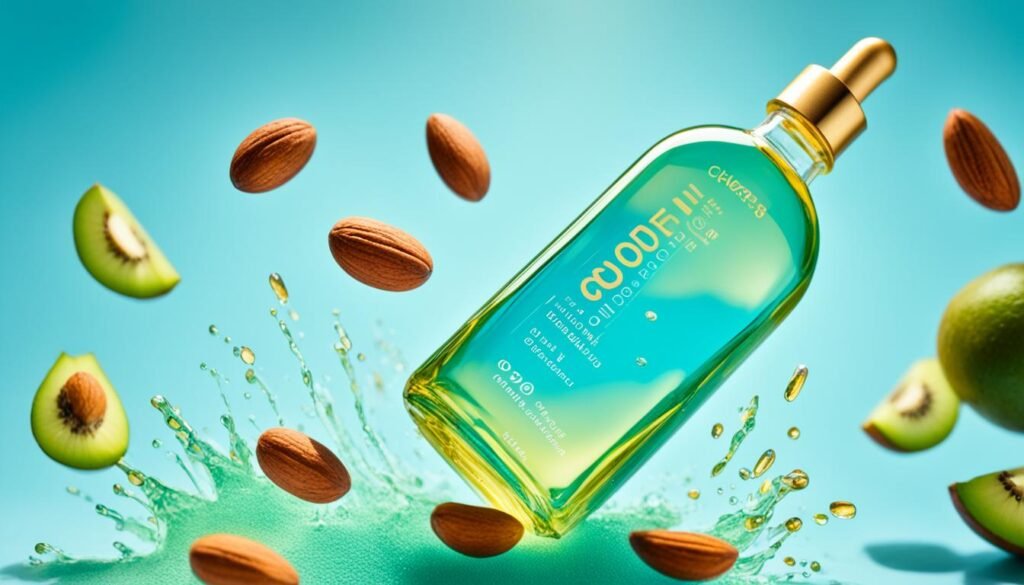
Vitamin E is a vital nutrient that plays a crucial role in protecting and nourishing the skin. As a fat-soluble antioxidant, vitamin E helps shield the skin from damage caused by harmful free radicals and inflammation. It effectively neutralizes these radicals, preventing them from harming the skin cells and causing premature aging.
This potent antioxidant property of vitamin E contributes to its ability to defend against various skin concerns, including sun damage, pollution, and oxidative stress. By reducing the harmful effects of these aggressors, vitamin E promotes overall skin health and helps maintain a youthful appearance.
Benefits of Vitamin E for Skin
Vitamin E offers numerous benefits for the skin:
- Promotes skin repair and regeneration: Vitamin E supports the natural healing process of the skin, helping to repair damaged tissues and promote the growth of new, healthy cells.
- Enhances antioxidant protection: As a powerful antioxidant, vitamin E works synergistically with other antioxidants to provide comprehensive protection against oxidative damage caused by UV radiation, pollution, and other environmental stressors.
- Moisturizes and nourishes the skin: Vitamin E helps maintain the skin’s natural moisture barrier, preventing moisture loss and keeping the skin hydrated and supple.
- Reduces inflammation: Vitamin E has anti-inflammatory properties that help calm and soothe irritated and sensitive skin, reducing redness and discomfort.
- Improves skin tone and texture: Regular use of vitamin E can help even out the skin tone and texture, giving it a smoother, more radiant appearance.
Sources of Vitamin E for Skin
To reap the benefits of vitamin E for your skin, incorporate these vitamin E-rich foods into your diet:
| Food Source | Vitamin E Content (per 100g) |
|---|---|
| Almonds | 26.2mg |
| Sunflower seeds | 35.2mg |
| Spinach | 2.0mg |
| Broccoli | 0.8mg |
| Avocado | 2.1mg |
Additionally, vitamin E can be found in vegetable oils, such as wheat germ oil, olive oil, and sunflower oil. Including these foods in your diet can help ensure an adequate intake of vitamin E to support your skin health.
If you prefer a topical approach, many skincare products contain vitamin E as a key ingredient. Look for moisturizers, serums, and creams that feature vitamin E to provide your skin with targeted protection and nourishment.
Conclusion
In conclusion, nourishing your skin with the right vitamins is crucial for maintaining its health and achieving a radiant glow. The key takeaways from this article include the importance of antioxidants like vitamins A, C, and E in protecting the skin against free radical damage. Additionally, vitamins D and K play a vital role in supporting skin repair and healing. B vitamins such as niacin and pantothenic acid are essential for promoting skin health and reducing inflammation.
To optimize your skin’s health and radiance, it is important to incorporate a variety of nutrient-rich foods into your diet. Including fruits, vegetables, whole grains, lean proteins, and healthy fats can provide your skin with the essential vitamins it needs. However, before starting any new vitamin supplementation, it is always advisable to consult with your healthcare professional for personalized guidance.
In summary, by nourishing your skin from the inside out with the right vitamins, you can support cellular repair, protect against damage, and promote healthy and glowing skin. Remember, your skin is a reflection of your inner well-being, so prioritize a balanced and nutrient-rich diet to enhance your skin’s health and radiance.
FAQ
What are the essential vitamins for skin health and glow?
The essential vitamins for skin health and glow include antioxidants like vitamins A, C, and E, as well as niacin, pantothenic acid, biotin, vitamin D, and vitamin E.
How do antioxidants benefit skin health?
Antioxidants protect against free radical damage, reduce inflammation, promote collagen synthesis, and enhance skin repair and rejuvenation. They can be found in brightly-colored fruits and vegetables, avocados, green tea, nuts, and legumes.
What does vitamin A do for the skin?
Vitamin A fights free radicals, stimulates collagen production, regulates sebum production, and is often used in the treatment of acne, eczema, and psoriasis. It can be found in cod liver oil, liver, egg yolks, and vegetables rich in provitamin A (beta-carotene).
What are the benefits of niacin for skin health?
Niacin improves cell metabolism, reduces inflammation, and helps maintain soft, healthy, and glowing skin. It can be found in meat, poultry, fish, green leafy vegetables, mushrooms, avocado, and sunflower seeds.
How does pantothenic acid support skin healing?
Pantothenic acid supports the growth of new skin cells, regulates cortisol (the stress hormone), and keeps the skin moisturized. It can be found in egg yolks, whole grains, broccoli, mushrooms, and avocado.
What are the benefits of biotin for skin and hair health?
Biotin protects skin cells from water loss, regulates fatty acid metabolism, and promotes healthy skin and hair. It can help alleviate symptoms of a scaly scalp, dandruff, hair loss, brittle nails, fatigue, and dry skin. Good sources of biotin include egg yolks, beef liver, salmon, avocado, almonds, and legumes.
How does vitamin C promote collagen production?
Vitamin C is essential for collagen synthesis, wound healing, and protecting the skin from free radical damage. It can be found in citrus fruits, leafy greens, tomatoes, and berries.
What role does vitamin D play in skin health?
Vitamin D supports skin repair, strengthens bones, and boosts immune function. It can be obtained through adequate sun exposure or by consuming fatty fish, eggs, and fortified dairy products.
How does vitamin E protect the skin?
Vitamin E is a fat-soluble antioxidant that helps protect the skin from damage and inflammation. It can be found in vegetable oils, nuts, seeds, green vegetables, and antioxidant-rich elixirs.
What are the key takeaways for maintaining skin health and glow?
To maintain skin health and promote a radiant glow, it is important to nourish your skin with essential vitamins and nutrients. Incorporate antioxidants, vitamins A, C, and E, niacin, pantothenic acid, biotin, vitamin D, and vitamin E into your diet through nutrient-dense foods. Consult with your healthcare professional before starting any new vitamin supplementation.

